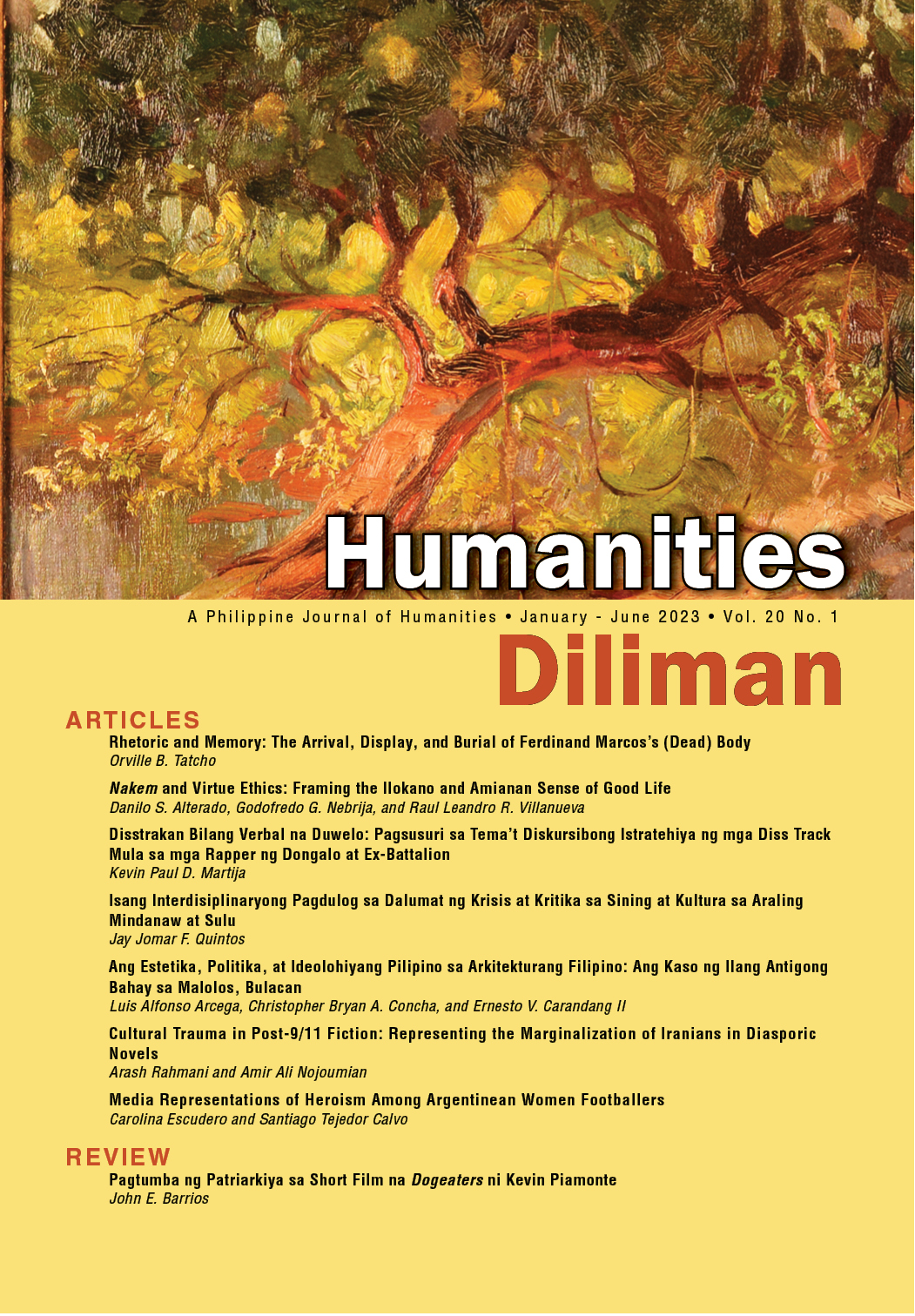Nakem and Virtue Ethics: Framing the Ilokano1 and Amianan Sense of Good Life
Abstract
This paper aims to intellectualize the indigenous Ilokano sense of good life in relation to three substantive and symbiotic concerns: first, to show the centrality of the indigenous term nakem as an all-inclusive concept of Ilokano cultural self-understanding and sense of good life; second, to explicate the indigenous terms pagtaengan (“Ilokano home”) and panagtaripato (“to take care of”) as concepts of dwelling and nurturing the Ilokano virtues of kinaimbag a nakem (“goodness”); and, third, to manifest pammati (“faith/belief”) in Ilokano practices of ethnoreligiosity as integral to the quest of the good. Through critical-normative and lexicographic approaches, this study unpacks the rich resource of meaning of a core Ilokano concept. It argues that the indigenous Ilokano term nakem is the most comprehensive word that embodies understanding the Ilokano universe. It is the key to the rich and dynamic resource of the Ilokano lifeword that intimates the Ilokano ontology of the self, epistemology, ethics, and its cosmic relation to the Ilokano earth. To foster and nurture kinaimbag a nakem, the Ilokano home is the locus for moral character and value formation. The panagnakem (“becoming virtuous”) of the Ilokano includes fostering ethno-religious practices.


